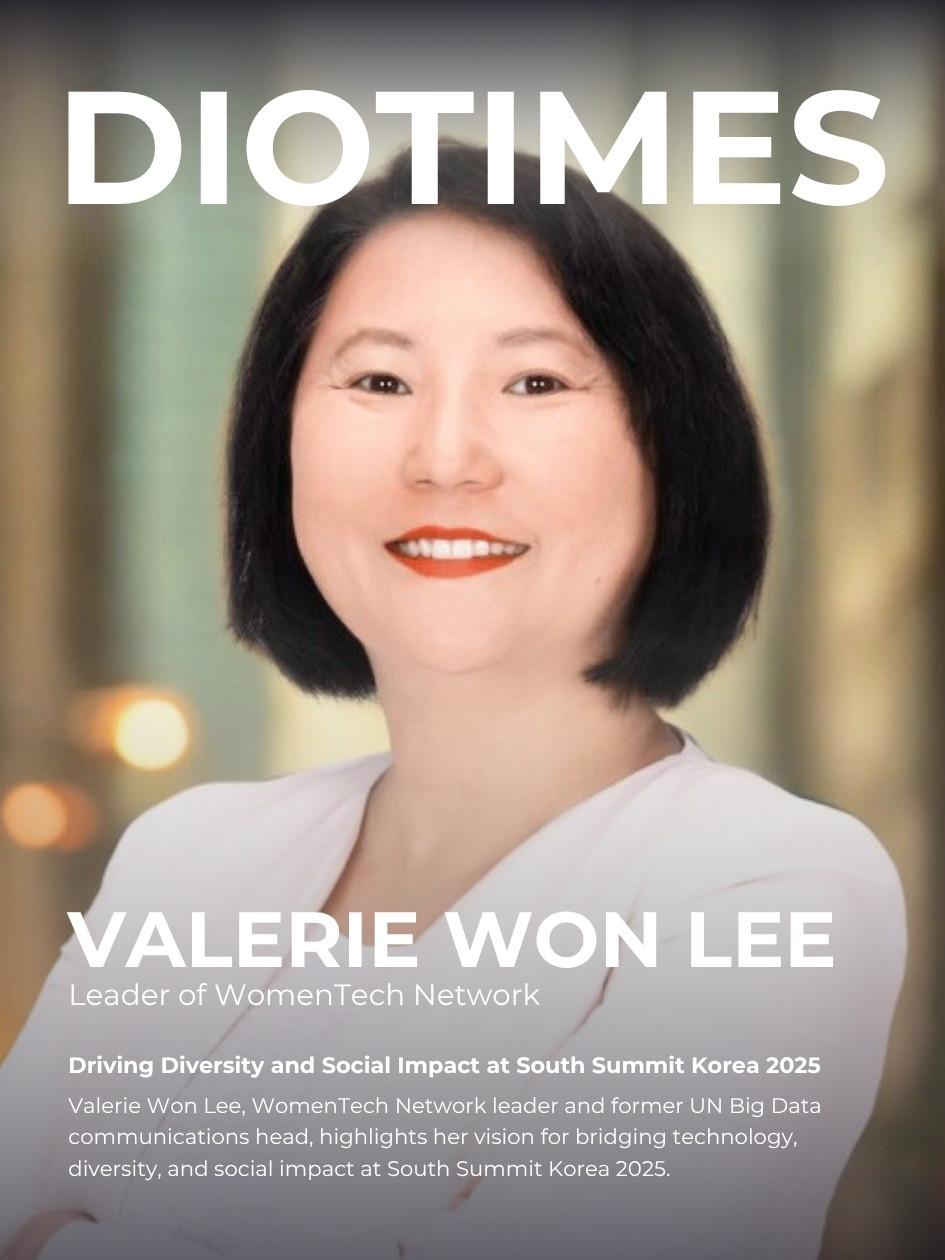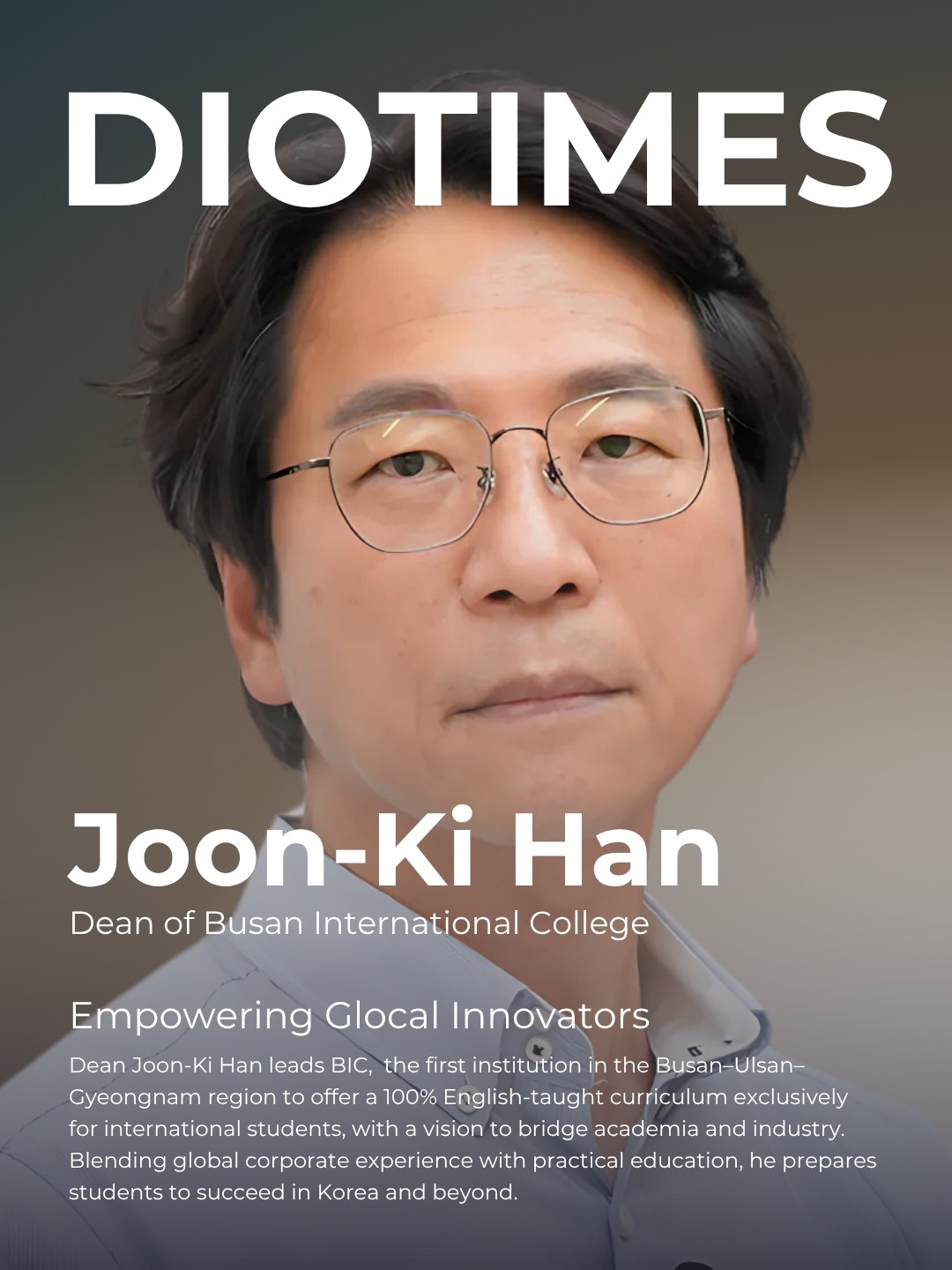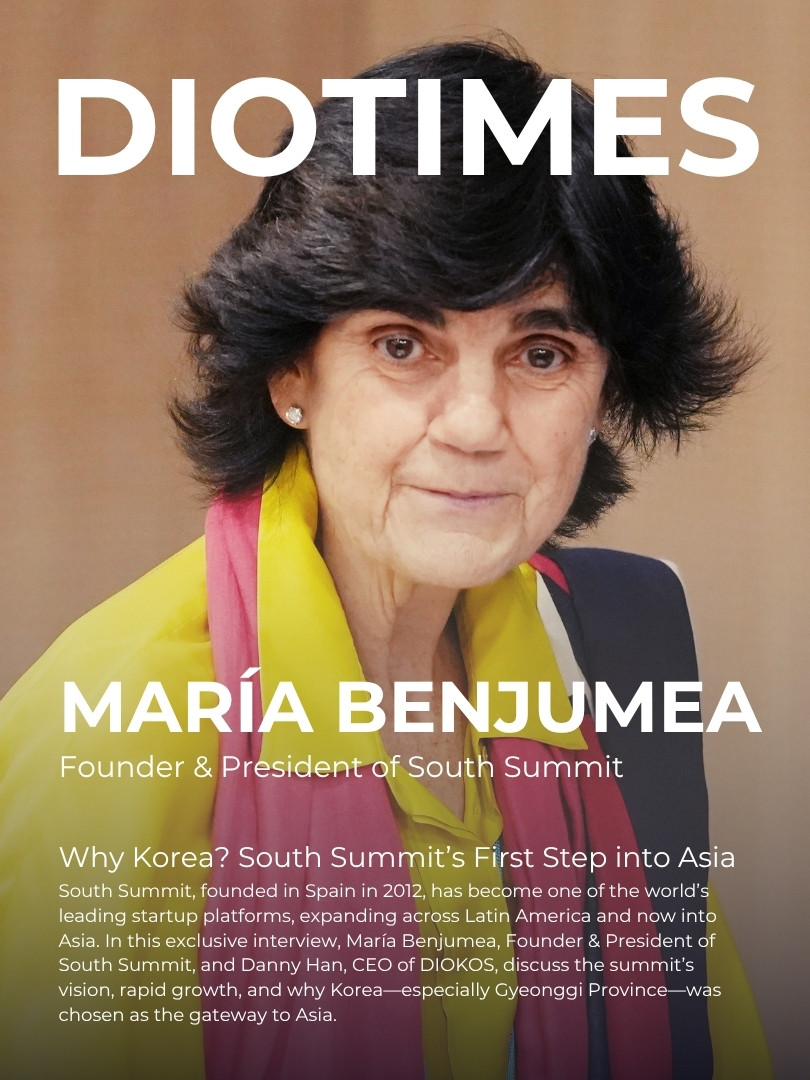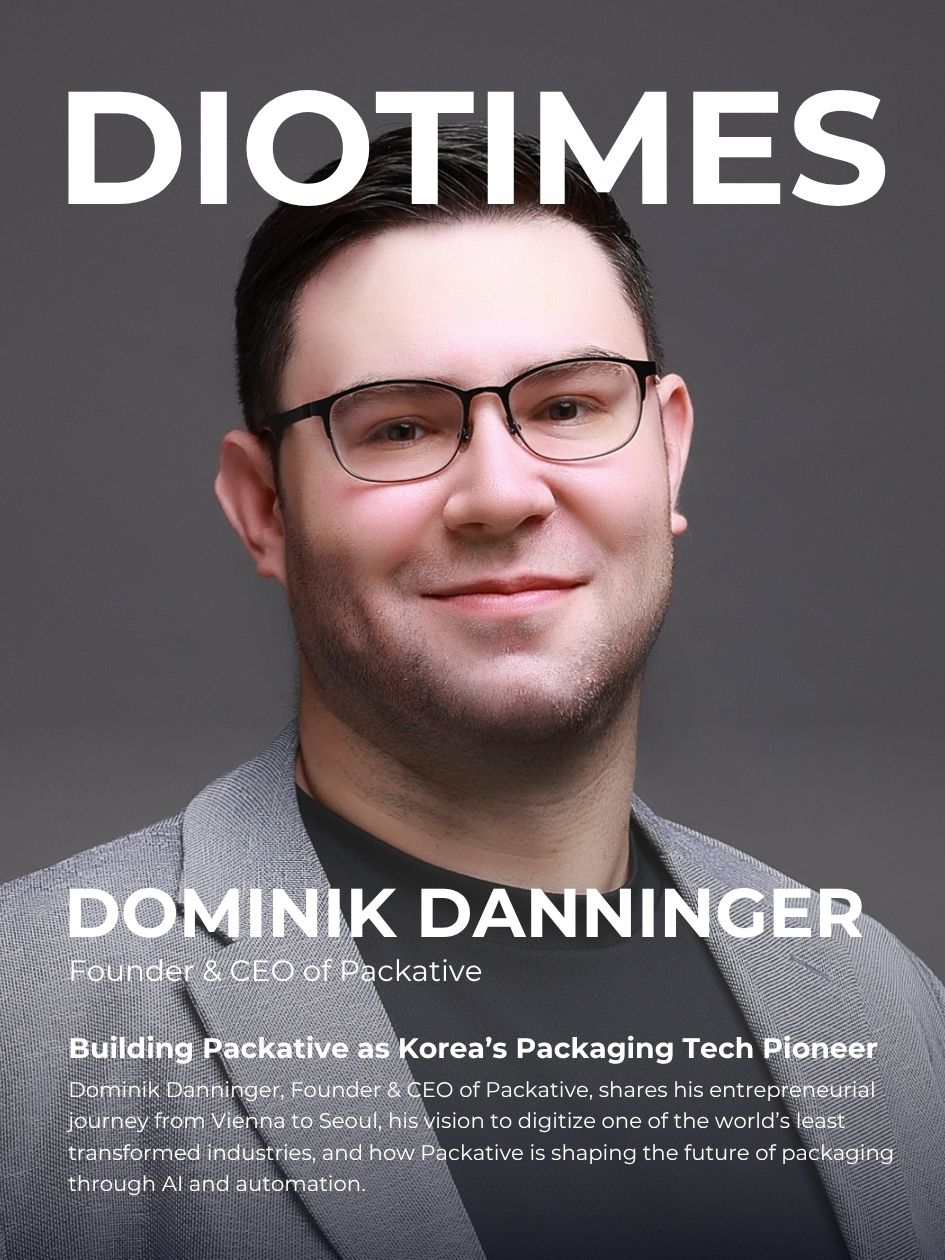You have held leadership roles across the UN, British public sector, and global social-impact initiatives. What has been the driving force behind your eclectic career path?
I’ve travelled and lived abroad for over two decades, doing humanitarian work in some of the most deprived areas. Passing through civil-war areas and helping with education projects in Guatemala City’s garbage-dump community—where joining gangs is the only way to survive—forces you to confront powerlessness. I realized that lasting impact requires two proximities: to people, for insight, and to decision-making, for leverage. That insight pushed me to keep moving forward and into global organizations that can turn community needs into real decisions.
As a Korean-born leader with a multicultural upbringing, how has your identity shaped your communication style and leadership journey?
I was born in Korea and raised in a small inland town in western France. I was the only Asian in a town of 3000 inhabitants. Perceptions were influenced by films about the Vietnam War, so judgments formed quickly and friendships were hard—especially as I entered my teenage years. At 11, I started borrowing psychology and sociology books from the library. That’s when I began learning to analyze people, read a room, and communicate clearly.
From founding World Citizen Artists to leading WomenTech Network Korea, you’ve bridged art, technology, and social impact. How have these experiences influenced your vision of leadership?
Whether it’s World Citizen Artists or WomenTech Korea, I’ve learned that leadership is as much about understanding human behavior—starting with your own—as it is about strategy. I try to treat people the way I want to be treated: with clarity, respect, and accountability. And I try to lead by example. The domain may shift—from art to technology to social impact—but the functionality of leadership stays the same: embody the values, align incentives, and create the conditions for others to thrive.

As WomenTech Network South Korea Chapter Leader, what do you see as the most urgent challenges for diversity and inclusion in the Korean tech ecosystem?
I’m new to Korea and still learning. There are already many organizations tackling diversity and inclusion, and if WomenTech Network establishes an official branch here, it should be because we add value—not compete. For now, I’m meeting community leaders, listening and learning, while welcoming women in tech and allies into the global WomenTech Network so they can expand their opportunities to meet women in tech from around the world, as we figure out the best way to collaborate locally.
What unique cultural strengths or differences have you observed between the global WomenTech community and the Korean chapter?
In Korea, everything moves at light speed. The women joining our community are highly communicative, motivated, and eager to plug into the global network. Some want to contribute, others are seeking opportunities—and all are willing to support one another, which is genuinely heartwarming and reflects a more collectivist culture that not every country shares.
Could you highlight specific initiatives you are leading to empower women in technology and entrepreneurship?
Right now my focus is simple: inform, listen, and assess. I explain what the global WomenTech Network offers, share requested information, and observe local needs. I’m not proposing programs or operating locally for now. My role is to gauge whether there’s sufficient interest for Korea and HQ to consider next steps—whether that’s an official Korea presence, a broader APAC approach, or no expansion yet.
What motivated you to participate in South Summit Korea 2025, and what do you expect to achieve through this event?
As someone new to the Korea tech world, South Summit is a great opportunity to meet the country’s tech entrepreneurs and to understand the international community that’s engaging with Korea. South Summit has a strong reputation for quality events, and I’m truly honored to be part of it.
Which emerging trends—such as AI, ESG, or impact-driven entrepreneurship—are you most interested in during this year’s summit?
In today’s world, they’re inseparable. If one is missing, sustainability becomes questionable.
How do you think platforms like South Summit can transform the Korean startup and innovation landscape?
South Summit can be an excellent bridge between Korea and the West. With so many new initiatives and emerging talents here, it’s a powerful platform to open doors and create opportunities.
Are there particular partners, sectors, or collaborations you are looking forward to at the summit?
Beyond helping the global WomenTech community connect with Korea, I’m always looking for distinctive, high-impact collaborations across sectors. If a project can genuinely improve lives—and I can be a useful bridge to people, markets, or pilots—I’m keen to talk.
Having served as Head of Communications for UN Big Data, how has that experience influenced your current perspective on technology and social good?
Big data is essential to humanity’s survival—especially accurate data—given the growing challenges we face. Unfortunately, it’s still widely misunderstood by the public, so educating people about its importance is critical.
You have introduced the “Social-Impact-Global” framework. How can Korean startups apply this framework to scale their businesses responsibly?
I created the SIG framework to make proven global communications and social-impact strategies easier to understand and apply. It’s a faster way to build a social-impact communications plan—and it helps you respond to crises quickly, especially in an AI-driven media cycle. For startups, where funding, time, and headcount are tight, SIG is a practical methodology: once you grasp it, you can apply it across all communications—from launch to issues management—whether you’re a startup or a large company.
In your opinion, how can technology companies effectively integrate social value into their branding and growth strategies?
Start by fully understanding the ecosystem and the social mechanisms you operate in. Then embed social value in the business model—not as a side project. That’s the core argument in my book, and it’s how you turn purpose into measurable growth.
Having experienced both successes and setbacks, from startups to global organizations, what lessons can you share about resilience and transformation?
Seek counsel, but if hesitation remains, trust your own voice—noise is constant; intuition is scarce. Control the controllables and adapt to the rest. Protect your energy: burnout doesn’t make you faster; it makes you late. Sustainable pace, firm boundaries, and regular resets convert setbacks into transformation.
What advice would you give to young women leaders who aspire to make their voices heard on the global stage?
As Anna Radulovski, founder of WomenTech Network, reminds our community, we succeed faster when we support rather than compete. If you want to be heard globally: choose collaboration over comparison, share platforms, and credit generously. There is room for everyone—your voice gets stronger when you help others use theirs.
Looking ahead, what is your vision for the WomenTech Network South Korea chapter and your personal journey over the next five years?
In the future, I would love to see WomenTech South Korea function as a bridge for APAC—listening first, co-creating with local leaders, and publishing proof of impact. I’d love to see a bilingual mentor exchange that consistently converts into career opportunities and promotions; founder pilots—responsible AI, climate-positive operations, inclusive talent pathways—that can scale across markets; and corporate allyship labs that improve hiring and retention. Any formal presence or structure would, of course, be determined by HQ. At this stage, I’m not operating a local entity; I’m simply facilitating conversations and connections between women in tech here in Korea and the global network while HQ assesses interest and fit.
For my personal journey, I’d love to reach professional fluency in Korean, keep growing the SIG framework wherever it can make a positive difference, and continue writing and speaking to help partners move from good intentions to measurable outcomes. I’m also excited to join a panel and deliver a keynote at the QS Higher Ed Summit Asia Pacific in Seoul on 4–6 November 2025—now in its 21st year. The summit brings together top university leaders from around the globe, sector and business experts, and government officials to explore how universities in Asia-Pacific can foster skills and research for the greater good, with forward-thinking conversations, partnership opportunities, and hands-on best-practice workshops.
Most of all, being part of a global community of changemakers—and contributing to tangible, positive impact—is what matters most to me.





